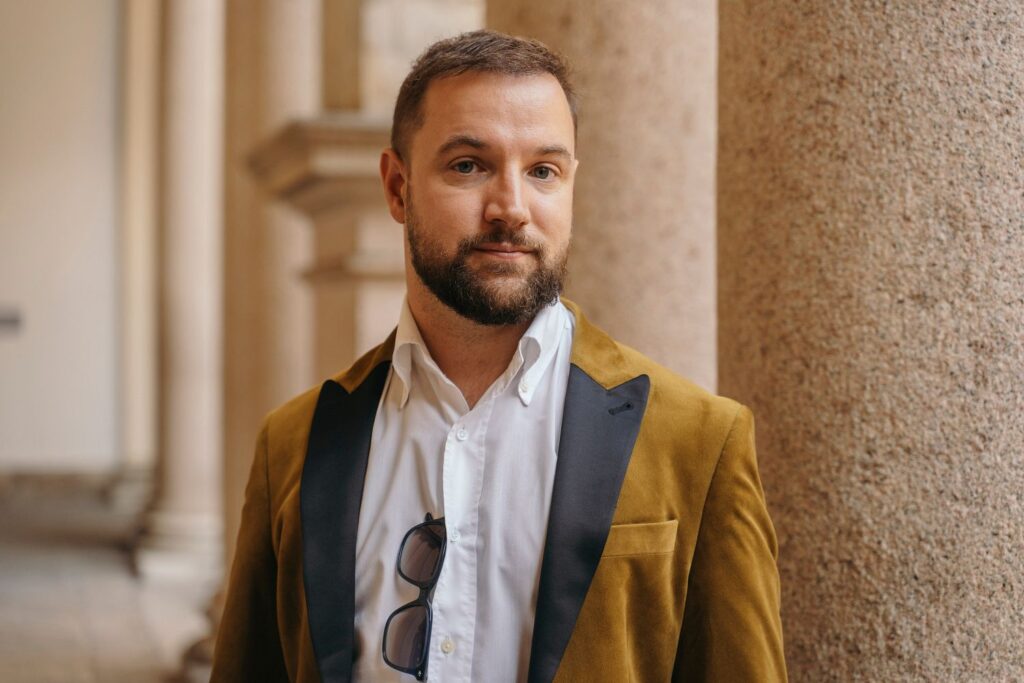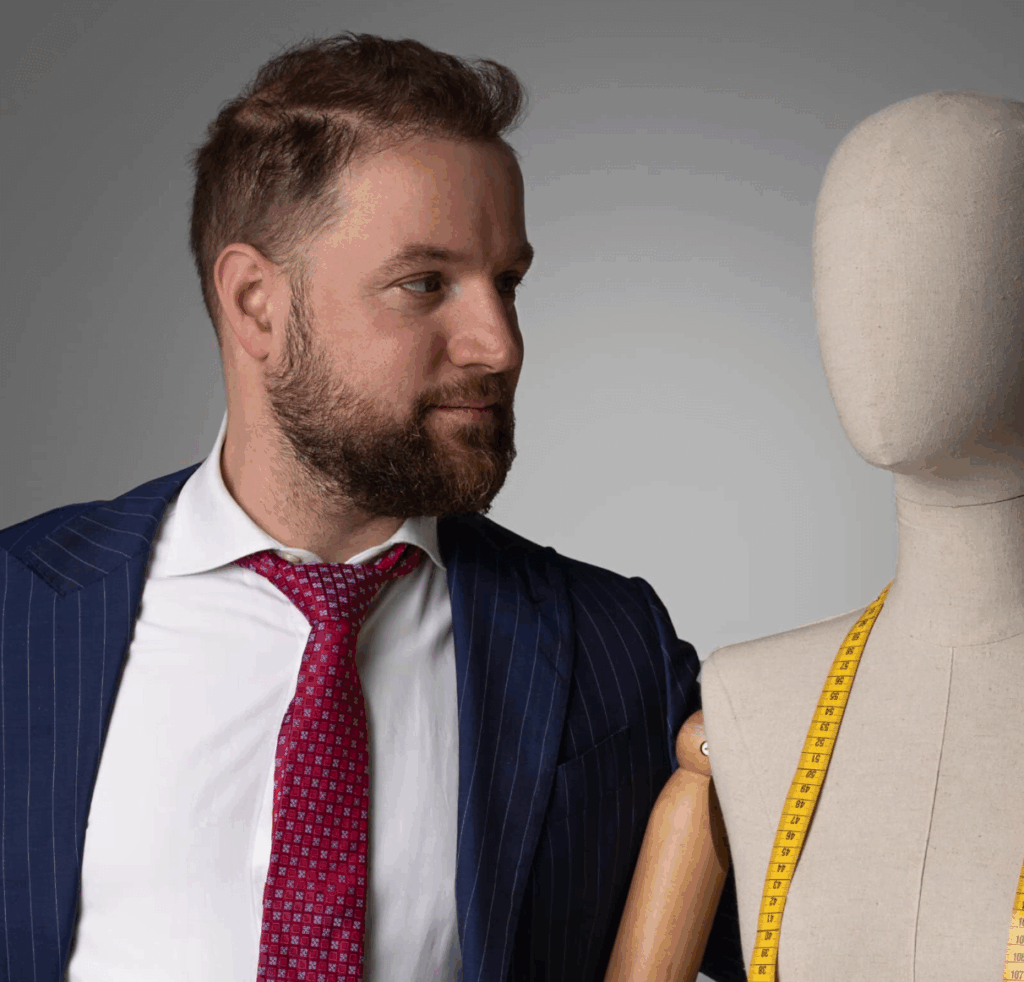Did you know that emotional storytelling can make customers up to three times more loyal to luxury brands? The luxury market is changing fast as brands turn to psychology, technology, and sustainability to connect with their customers in deeper ways. From AI-driven personalization to exclusive private communities, new strategies are shaping unforgettable experiences that make every client feel special.
Table of Contents
- Emotional Storytelling Fueled By Consumer Psychology
- Personalized Experiences Using AI And Data Insights
- Sustainable Luxury: Green Strategies For Brand Value
- Phygital Engagement: Blending Online And In-Person Touchpoints
- Elevating Exclusivity With Private Communities And Events
- High-Touch Service For Discerning High-Net-Worth Clients
- Leveraging Metaverse And Virtual Luxury Experiences
Quick Summary
| Takeaway | Explanation |
|---|---|
| 1. Emphasize Emotional Storytelling | Create narratives that resonate emotionally, forming deep connections with customers. |
| 2. Leverage AI for Personalization | Utilize AI to analyze data for tailored customer experiences across all touchpoints. |
| 3. Adopt Sustainable Practices | Implement green strategies to align with consumer values and environmental ethics. |
| 4. Create Phygital Engagements | Blend online and offline experiences to enhance customer journeys holistically. |
| 5. Foster Exclusive Micro Communities | Cultivate intimate networks to enhance customer loyalty through unique experiences. |
1. Emotional Storytelling Fueled by Consumer Psychology
Luxury brands are no longer selling products. They are crafting immersive emotional narratives that transform consumer experiences. Emotional storytelling has become the most powerful marketing strategy for connecting with discerning global audiences.
Psychologically driven storytelling creates profound connections by tapping into human emotions and aspirational desires. According to research from consumer behavior studies, emotional branding strategies can significantly increase a brand’s share of purchases among loyal customers. For luxury brands, this means moving beyond transactional interactions toward creating meaningful relationships.
Imagine transforming a simple product purchase into an extraordinary journey. A fragrance is no longer just a scent but a romantic narrative inspired by a Parisian love affair. Understanding Why Brand Storytelling Works reveals how packaging, imagery, and narrative can create an entire emotional ecosystem around a product.
To implement emotional storytelling effectively, luxury brands should:
- Develop narratives that resonate with target audience’s deepest aspirations
- Use authentic storytelling that reflects genuine brand values
- Create multimedia experiences that engage multiple sensory channels
- Craft narratives that make customers feel like protagonists in an extraordinary world
By integrating consumer psychology into brand communication, luxury brands can transform mere transactions into unforgettable emotional experiences that customers will cherish and remember.
2. Personalized Experiences Using AI and Data Insights
Artificial intelligence is transforming luxury brand interactions from generic transactions to deeply personalized journeys. Data driven personalization has become the cornerstone of exceptional customer experiences in 2025.
Luxury brands are now leveraging sophisticated AI algorithms to understand customer preferences with unprecedented precision. According to research from Boston Consulting Group, artificial intelligence enables brands to enhance human connection and redefine exceptional service at an entirely new scale.
Top global luxury brands like Gucci and Dior are pioneering this approach by using advanced data analytics to curate hyper personalized interactions. Best AI Tools for Luxury Branding demonstrates how technology can transform customer engagement strategies.
To implement AI driven personalization effectively, brands should:
- Collect and analyze granular customer data across multiple touchpoints
- Develop predictive models that anticipate individual customer desires
- Create seamless omnichannel experiences tailored to each client
- Maintain transparency about data usage and protect customer privacy
By integrating intelligent technologies with a deep understanding of human emotion, luxury brands can craft experiences that feel simultaneously cutting edge and intimately personal.
3. Sustainable Luxury: Green Strategies for Brand Value
Sustainability has transformed from a trendy buzzword to a fundamental expectation in luxury markets. Green strategies are no longer optional but a critical component of brand identity and consumer trust.
Luxury brands are reimagining their approach to sustainability through technological innovation and ethical commitment. According to recent research, younger luxury consumers seek deeper meaning beyond visual aesthetics. They demand products that represent authentic storytelling and demonstrate cultural significance.
Leading brands like Stella McCartney and Chanel are pioneering AI driven sustainability solutions. Complete Guide to Types of Luxury Branding Strategies highlights how technology can support ethical business practices.
To implement sustainable luxury strategies effectively, brands should:
- Leverage AI for transparent supply chain management
- Develop circular economy models that minimize waste
- Create products with traceable environmental credentials
- Communicate sustainability efforts authentically and transparently
By integrating green technologies and ethical practices, luxury brands can create value that resonates with conscious consumers while protecting our planet’s future.
4. Phygital Engagement: Blending Online and In-Person Touchpoints
Phygital experiences are revolutionizing luxury brand interactions by seamlessly merging digital innovation with physical world touchpoints. The future of luxury is no longer about choosing between online or offline experiences but creating a unified customer journey.
Digital fashion has emerged as luxury’s new frontier. Imagine virtually trying on a Valentino gown or an Hermès scarf without leaving your living room. According to recent research, AI driven virtual reality experiences are redefining how consumers shop and interact with luxury brands.
Understanding Luxury Branding Explained reveals how brands can create immersive experiences that transcend traditional boundaries. By enhancing human connections through technology, luxury brands can deliver exceptional service at an unprecedented scale.
To implement effective phygital strategies, brands should:
- Create seamless omnichannel experiences
- Develop interactive virtual try on technologies
- Design digital platforms that mirror in store luxury experiences
- Personalize digital interactions using advanced customer data
The goal is not to replace physical interactions but to enhance them with technological sophistication that makes every customer feel uniquely understood and valued.
5. Elevating Exclusivity with Private Communities and Events
Micro communities are transforming luxury brand engagement from mass marketing to intimately curated experiences. These exclusive networks are no longer just marketing tactics but strategic pathways to deeper customer relationships.
Luxury brands are reimagining exclusivity through meticulously crafted limited edition offerings that transform product releases into cultural moments. Innovative examples like Gucci Vault and Porsche’s P NFT demonstrate how token gated experiences can drive up to three times customer lifetime value by activating powerful psychological triggers like FOMO and prestige.
Top Luxury Marketing Trends for 2025 highlights the critical role of creating unique membership experiences that go beyond traditional customer interactions. These private communities offer more than products they provide belonging.
To create compelling exclusive communities, brands should:
- Design tiered membership experiences with escalating privileges
- Create unique digital and physical access points
- Develop content and experiences that feel genuinely rare
- Build emotional connections through shared values and narratives
The future of luxury marketing is about making customers feel like insiders in an extraordinary world where every interaction feels personally crafted and incredibly special.
6. High-Touch Service for Discerning High-Net-Worth Clients
Luxury service is entering a new era where technological precision meets unparalleled personal attention. High net worth clients expect experiences that are simultaneously cutting edge and intimately tailored.
According to Boston Consulting Group, artificial intelligence enables luxury brands to redefine exceptional service at scale while sharpening relevance for new generations of clients. For luxury retailers, AI represents a transformative opportunity to enhance bespoke experiences through digital channels.
How to Create Luxury Brand Experience demonstrates the critical importance of making every client interaction feel uniquely curated. The goal is creating service so personalized it feels like a conversation with a trusted confidant.
To deliver exceptional high touch service, brands should:
- Develop comprehensive client profiling using advanced data analytics
- Train dedicated relationship managers with deep product knowledge
- Create seamless omnichannel communication pathways
- Design personalized follow up protocols for every interaction
True luxury is no longer about exclusivity but about making each client feel extraordinarily understood and valued.
7. Leveraging Metaverse and Virtual Luxury Experiences
Digital fashion has emerged as luxury’s most transformative frontier where imagination transcends physical boundaries. The metaverse represents an unprecedented canvas for brands to craft immersive experiences that redefine consumer interactions.
AI driven virtual reality is revolutionizing how consumers explore and engage with luxury products. Imagine virtually trying on a Valentino gown or an Hermès scarf without leaving your living room. Pioneering brands like Ralph Lauren are already creating groundbreaking experiences such as ‘Ask Ralph’ an AI powered conversational shopping platform that generates personalized outfit recommendations.
Understanding Luxury Brand Experience Guide highlights how technological innovation can create extraordinary customer journeys. The metaverse allows brands to storytell in ways previously unimaginable.
To successfully leverage virtual luxury experiences, brands should:
- Develop immersive digital environments that mirror physical luxury
- Create interactive product visualization technologies
- Design AI driven personalization engines
- Build seamless transitions between digital and physical interactions
The future of luxury is not about replacing physical experiences but expanding them into extraordinary multidimensional realms where creativity knows no boundaries.
Below is a comprehensive table summarizing the strategies and approaches discussed throughout the article on transforming luxury brand experiences.
| Strategy | Implementation | Expected Results |
|---|---|---|
| Emotional Storytelling | Develop narratives resonating with audience aspirations; use authentic and multimedia storytelling. | Create profound connections, increase share of purchases. |
| Data-Driven Personalization | Leverage AI to analyze customer data; create tailored omnichannel experiences. | Enhance human connection; redefine customer service. |
| Sustainable Luxury | Use AI for supply chain transparency; develop circular economy models. | Build brand value with conscious consumers; ensure ethical practices. |
| Phygital Engagement | Merge online and offline experiences; develop virtual try-ons. | Create unified customer journeys, enhance physical interactions with technology. |
| Exclusive Communities | Design tiered memberships; offer unique digital/physical experiences. | Strengthen customer relationships, increase lifetime value. |
| High-Touch Service | Use data analytics for profiling; personalize client interactions. | Deliver exceptionally tailored experiences; enhance client understanding. |
| Virtual Luxury Experiences | Develop immersive digital environments; create AI-driven personalization. | Expand luxury experiences into virtual realms; redefine consumer engagement. |
Unlock the Power of Cutting-Edge Luxury Marketing Trends Today
The challenge for global luxury brands in 2025 is clear: evolve beyond simple transactions to create emotionally rich, personalized experiences that resonate deeply with discerning customers. With trends like emotional storytelling, AI-driven personalization, sustainable luxury, and phygital engagement redefining how brands connect with their audience, standing still is not an option. You need to embrace innovative strategies that blend psychology with technology to foster genuine connections and elevate exclusivity.
Corrado Manenti specializes in transforming these key luxury marketing challenges into actionable, results-driven opportunities. His expertise in Marketing Fashion – Corrado Manenti seamlessly integrates consumer psychology and digital innovation to help your brand build immersive narratives and personalized journeys that captivate your clientele. Discover how to keep your brand ahead with strategies that speak to the heart and mind, while maintaining impeccable detail and authenticity.

Ready to future-proof your luxury brand and turn complex marketing trends into unmistakable advantages? Visit Corrado Manenti now to explore tailored consulting services designed specifically for fashion and luxury sectors. Elevate every aspect of your brand experience by combining human behavioral insights with cutting-edge marketing solutions and start creating lasting emotional value that drives growth immediately.
Frequently Asked Questions
What are the main luxury marketing trends for 2025?
The main luxury marketing trends for 2025 include emotional storytelling, AI-driven personalized experiences, sustainable luxury practices, phygital engagement, exclusive communities, high-touch service for high-net-worth clients, and leveraging the metaverse for virtual experiences. To stay ahead, regularly evaluate your brand’s marketing strategies against these trends and plan adjustments accordingly.
How can luxury brands implement emotional storytelling?
Luxury brands can implement emotional storytelling by developing narratives that resonate with their audience’s deepest aspirations and values. Start by crafting narratives that make the customer feel like the protagonist in their personal journey, engaging them emotionally with the brand.
What strategies can luxury brands use for data-driven personalization?
Luxury brands can use data driven personalization by collecting granular customer data and developing predictive models to anticipate individual preferences. Begin by analyzing data from multiple customer touchpoints to create tailored experiences that cater to each client’s unique desires.
How can a luxury brand adopt sustainable practices effectively?
To adopt sustainable practices, a luxury brand should leverage technology for transparent supply chain management and develop circular economy models to minimize waste. Initiate by creating products with traceable environmental credentials and communicate your sustainability efforts authentically to build trust with consumers.
What steps are needed to create phygital experiences?
Creating phygital experiences requires brands to design seamless omnichannel strategies that integrate both online and offline touchpoints. Start by developing interactive technologies that enhance the physical shopping experience, allowing customers to engage with the brand in multiple ways, both digitally and in-person.
How can luxury brands foster exclusive micro communities?
Luxury brands can foster exclusive micro communities by designing tiered membership experiences with unique privileges and curated content. Begin by crafting experiences that make customers feel they belong to something special, emphasizing shared values and narratives to deepen emotional connections.



